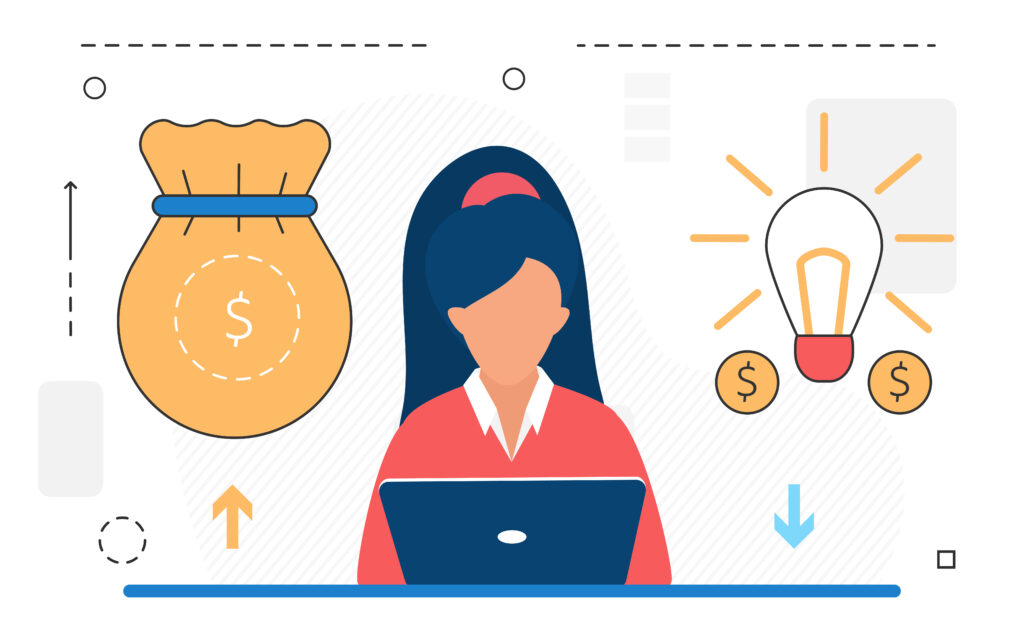Living paycheck to paycheck is tough. It means you spend all your money before the next paycheck comes. Many people feel stuck in this cycle. They worry about paying bills or running out of cash. But there’s good news: You can stop living paycheck to paycheck. With small changes, you can take control of your money. In this article, we’ll share simple tips anyone can follow. These tips don’t require fancy math or big sacrifices. Let’s get started!
Understand Where Your Money Goes
The first step to stopping paycheck-to-paycheck living is knowing where your money goes. Many people earn money but don’t track how they spend it. This makes it hard to save or make smart choices.
Imagine you have a jar of cookies. If you eat them without paying attention, they’ll disappear quickly. The same thing happens with money. To avoid this, write down everything you spend. For example:
- Write down how much you spend on groceries.
- Note how much you pay for gas or bus tickets.
- Keep track of small things like snacks or drinks.
At the end of the week, look at your list. You might be surprised by how much you spend on little things. Once you know where your money goes, you can make better choices.
Make a Simple Budget
A budget is like a plan for your money. It tells you how much to spend and save each month. Think of it as a map that helps you reach your goals.
Here’s how to make a budget:
- Write down how much money you earn each month.
- List all your fixed expenses, like rent, utilities, and groceries.
- Subtract these expenses from your income.
- Use the leftover money for savings and fun things.
For example, if you earn $1,000 a month and your expenses are $800, you’ll have $200 left. You could save $100 and use the other $100 for hobbies or treats.
A budget doesn’t have to be perfect. Start simple and adjust as you go. Over time, you’ll get better at sticking to it.
Save a Little Every Month
Saving money is one of the best habits you can develop. Even if you can only save a small amount, it adds up over time. Think of saving like planting seeds. A tiny seed grows into a big tree if you take care of it.
Start by setting aside a small part of your income each month. For example, if you earn $500, try saving $25. Put this money in a separate account or a piggy bank. Don’t touch it unless it’s an emergency.
Why is saving important? Life is full of surprises. Your car might break down, or you might need to visit a doctor. Having savings helps you handle these situations without stress. Plus, saving gives you peace of mind. You’ll feel more secure knowing you have a safety net.
Avoid Unnecessary Spending
One reason people live paycheck to paycheck is unnecessary spending. They buy things they don’t really need. To stop this habit, ask yourself three questions before buying something:
- Do I really need this?
- Will I still want it next month?
- Can I wait before buying it?
For example, if you see a pair of shoes you like, wait a week before buying them. If you still want them after a week, they might be worth it. Often, you’ll forget about them and save money.
By avoiding unnecessary spending, you’ll have more money for important things, like savings or debt payments.
Build an Emergency Fund
An emergency fund is money set aside for unexpected events. These could include losing your job, getting sick, or needing car repairs. Without an emergency fund, you might have to borrow money or dip into your savings.
To start an emergency fund:
- Set a goal, like $500 or $1,000.
- Save a small amount each month, even if it’s just $10 or $20.
- Keep the money in a separate account so you’re not tempted to spend it.
Having an emergency fund gives you confidence. You’ll know you’re prepared for whatever comes your way. It also prevents you from going into debt when life throws a curveball.
Pay Yourself First
Paying yourself first means saving money before you spend it. This habit ensures you always have money for the future.
Here’s how it works:
- When you get paid, set aside a small amount for savings.
- Treat savings like a bill you must pay. Don’t skip it.
For example, if you earn $500, save $25 right away. Then use the rest for your expenses. By paying yourself first, you won’t run out of money to save.
This habit builds wealth over time. Imagine saving $25 every month. After a year, you’ll have $300. After 10 years, you’ll have $3,000. Add interest from a savings account, and your money grows even faster.
Use Cash Instead of Cards
Using cash instead of credit or debit cards can help you spend less. When you see money leaving your hands, it feels more real. This makes you think twice before spending.
Here’s how to try this:
- Take out a set amount of cash each week for spending.
- Use it for groceries, gas, and other expenses.
- Leave your cards at home to avoid overspending.
For example, if you take $50 for groceries, you’ll stop shopping once you run out of cash. This keeps you from buying things you don’t need.
Cut Down on Big Expenses
Big expenses, like rent or car payments, can keep you stuck in the paycheck-to-paycheck cycle. If possible, find ways to reduce these costs. Here are some ideas:
- Move to a cheaper apartment or share a place with roommates.
- Use public transportation instead of owning a car.
- Switch to a cheaper phone or internet plan.
For example, if you save $100 on rent each month, that’s $1,200 in a year. Small changes in big expenses can make a huge difference.
Learn to Say
Sometimes, saying no is the best thing you can do for your finances. Friends or family might invite you to dinner, shopping, or trips. While these activities can be fun, they can also drain your wallet.
It’s okay to say no if you can’t afford something. For example:
- If your friends want to eat at an expensive restaurant, suggest a cheaper option.
- If someone asks you to lend money, explain that you’re focusing on your own financial goals.
Saying no doesn’t mean you’re being selfish. It means you’re taking care of yourself and your future. Remember, your financial health is important.
Celebrate Small Wins
Changing your financial habits takes time. Don’t expect overnight success. Instead, celebrate small wins along the way. This keeps you motivated and excited about your progress.
For example:
- Treat yourself to a movie when you hit a savings goal.
- Share your achievements with friends or family.
- Reflect on how far you’ve come.
Celebrating wins reminds you why you started. It also makes the journey more enjoyable.
Find Ways to Earn Extra Income
If you’re still struggling to break the paycheck-to-paycheck cycle, earning extra income can help. There are many ways to make extra money without quitting your job. Here are some ideas:
- Sell things you don’t need, like old clothes or electronics.
- Rent out a room in your home or your car.
- Offer services like babysitting, pet sitting, or tutoring.
For example, if you sell old items for $50, that’s money you didn’t have before. Every little bit helps.
Stay Patient and Consistent
Stopping paycheck-to-paycheck living takes time. Don’t give up if you don’t see results right away. Keep working on your habits, and you’ll notice improvements over time.
Remember, small changes add up. Saving $10 a month might not seem like much, but it’s $120 in a year. Over five years, that’s $600. With patience and consistency, you’ll build a stronger financial foundation.
Final Thoughts
You don’t have to live paycheck to paycheck forever. By tracking your spending, making a budget, and saving a little each month, you can take control of your money. Avoid unnecessary spending, build an emergency fund, and pay yourself first. Use cash instead of cards, cut down on big expenses, and learn to say no. Celebrate small wins and stay patient.







Deixe um comentário